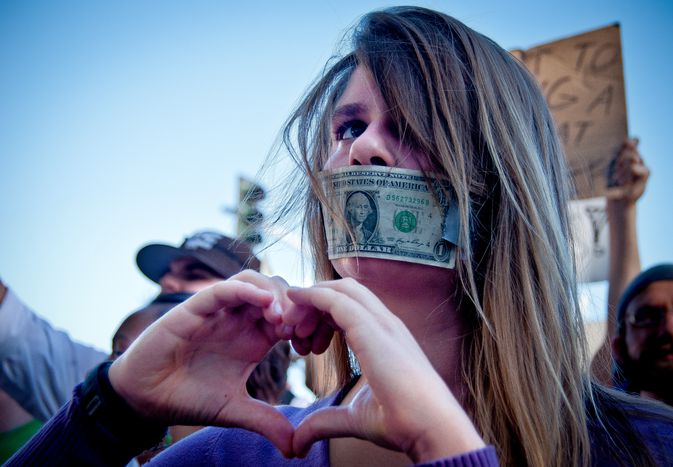
The Political Animal: An Italian Communist in the Bundestag
Published on
Born in Tuscany, Paola Giaculli was already an Italian Communist Party activist at the age of 15. But now this political animal has migrated to the Bundestag, where she battles history, capitalism and Angela Merkel on behalf of Germany's far-left party, Die Linke. She also had a shot at the European Parliament. I caught up with her in Berlin...
I meet Paola Giaculli in Die Eins Café just around the corner from the Bundestag. Strange sculptures nestle in wall recesses, a frivolous touch that contrasts with the brutal black tables, sharp and shiny, Teutonic. Paola Giaculli arrives and we recognise each other immediately, although we’ve never met. We must have formed accurate mental images from our email exchanges. Or perhaps it’s a process of elimination – I’m the only person in the café, so it must be me.
Paola Giaculli is an Italian communist in the Bundestag. However, what interests me most, perhaps counterintuitively, is the question of, what does an Italian communist in the Bundestag do when she’s not in the Bundestag? The question is earnest, but apparently it’s a curveball. Silence ensues... before Giaculli chuckles, “that’s a difficult question because I’m a political animal.” Oh Lord. She laughs, but she’s not joking. The laughter quickly turns to zeal. “I was born with this kind of passion. For me it’s a passion and a fury against any kind of injustice.”
Prisoners of history
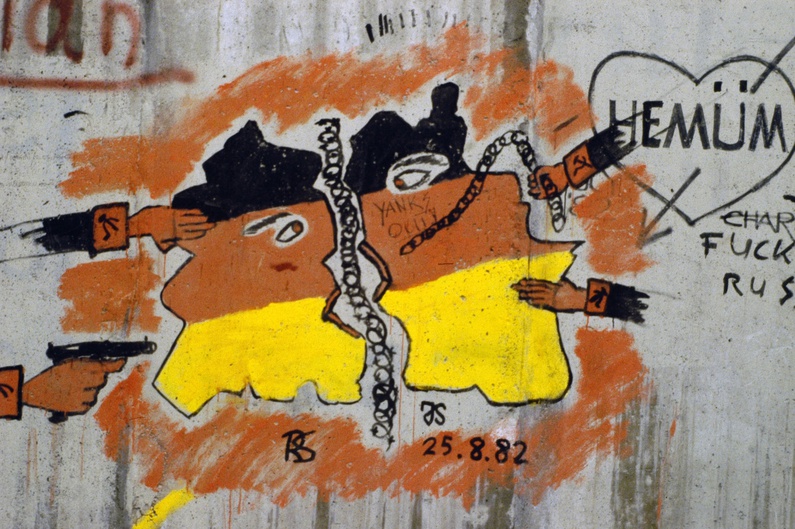 Die Linke rose from the ashes of the East German Communist Party, which governed East Germany from 1949 – 1989. They were Germany’s third largest party in the 2013 parliamentary elections with 8.6% of the vote. Relics of Germany’s divided past are strewn across the capital — out of the window I can see the Marschallbrücke Bridge which the Nazis blew up to halt the Red Army’s advance. Equally, a residue of historical rancour still clings to proceedings in the Bundestag. “Sometimes I get the feeling in the Bundestag that we are still in the 50s, still in the Cold War,” says Giaculli bitterly. She lays the blame squarely on the shoulders of Merkel’s Christian Democratic Union, recalling indignantly how she was accused of being a Stalinist criminal. “Until these people die, you’ve got to cope with this,” Giaculli laughs morbidly.
Die Linke rose from the ashes of the East German Communist Party, which governed East Germany from 1949 – 1989. They were Germany’s third largest party in the 2013 parliamentary elections with 8.6% of the vote. Relics of Germany’s divided past are strewn across the capital — out of the window I can see the Marschallbrücke Bridge which the Nazis blew up to halt the Red Army’s advance. Equally, a residue of historical rancour still clings to proceedings in the Bundestag. “Sometimes I get the feeling in the Bundestag that we are still in the 50s, still in the Cold War,” says Giaculli bitterly. She lays the blame squarely on the shoulders of Merkel’s Christian Democratic Union, recalling indignantly how she was accused of being a Stalinist criminal. “Until these people die, you’ve got to cope with this,” Giaculli laughs morbidly.
Although Die Linke’s grey vote is strong amongst East German nostalgics, the party is not anachronistic. Giaculli defines Die Linke with a few buzzwords - openness, freshness, culture, festivals - rhetoric which is backed up by my chance encounters with the party in Berlin. I met a group of Die Linke representatives outside the Family Ministry cheering the raising of the rainbow flag over the Ministry for the first time ever. A few days later, I saw a Die Linke flag flying over a sea of gyrating torsos and twerking buttocks at the Lesbian and Gay City Festival. The members were mingling, outlining policies over pounding techno.
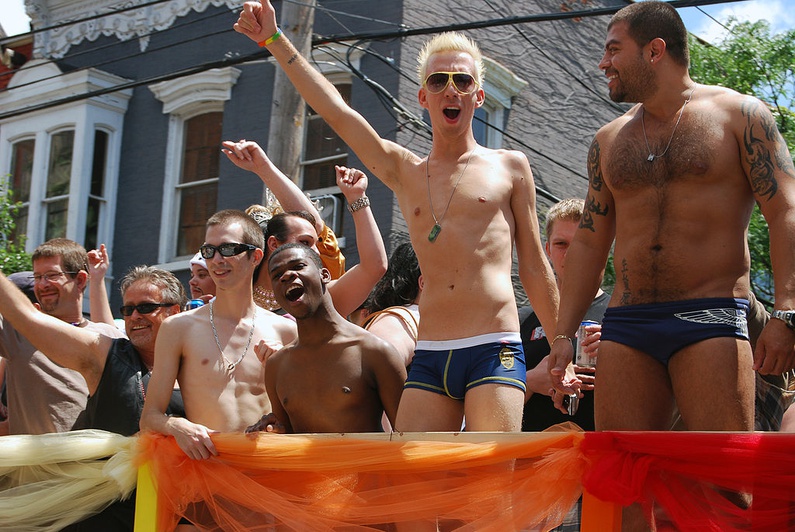 Immigration is a staple in the diet of any thorough-bred European political animal, left or right, and Paola Giaculli is no exception. In Europe, for months, even years, our weary ears have been battered by anti-immigrant discourse — by Merkel and Cameron’s talk of ‘social/benefit tourism’, by Le Pen’s Islamophobia, by the rhythmic drone of UKIP’s attacks on Eastern Europeans. Even ‘pro-immigration’ parties discuss the issue in practical terms that turn you off, reducing the debate to numerical skirmishes about taxes and benefits. As such, Paola Giaculli’s utopian ideas lend the debate a refreshing vitality.
Immigration is a staple in the diet of any thorough-bred European political animal, left or right, and Paola Giaculli is no exception. In Europe, for months, even years, our weary ears have been battered by anti-immigrant discourse — by Merkel and Cameron’s talk of ‘social/benefit tourism’, by Le Pen’s Islamophobia, by the rhythmic drone of UKIP’s attacks on Eastern Europeans. Even ‘pro-immigration’ parties discuss the issue in practical terms that turn you off, reducing the debate to numerical skirmishes about taxes and benefits. As such, Paola Giaculli’s utopian ideas lend the debate a refreshing vitality.
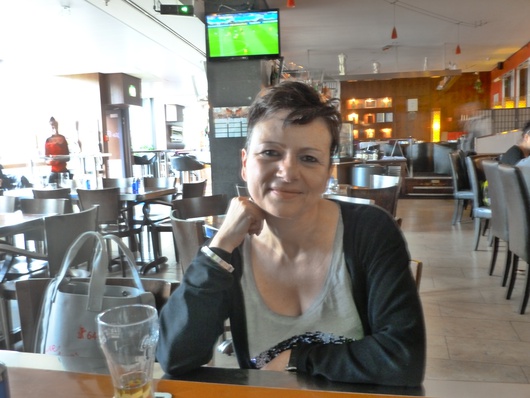 “I don’t believe in a world divided into borders,” she says with a sincerity that is more rousing than even the most seductive statistics. Instead of being preoccupied with our petty complaints about immigration, Giaculli says what concerns her are the rather less petty problems that inspire immigration. Immigrants come to Europe “fleeing from war, from hunger, from torture”. She believes all Europeans should have the same passport. This sense of universality and trans-nationalism answers one of my more urgent but less profound questions: why is an Italian ex-Communist working in the Bundestag anyway? “I believe in the European project,” explains Giaculli, “so it makes no difference where I work.”
“I don’t believe in a world divided into borders,” she says with a sincerity that is more rousing than even the most seductive statistics. Instead of being preoccupied with our petty complaints about immigration, Giaculli says what concerns her are the rather less petty problems that inspire immigration. Immigrants come to Europe “fleeing from war, from hunger, from torture”. She believes all Europeans should have the same passport. This sense of universality and trans-nationalism answers one of my more urgent but less profound questions: why is an Italian ex-Communist working in the Bundestag anyway? “I believe in the European project,” explains Giaculli, “so it makes no difference where I work.”
Let's get back those billions
What about the fight against capitalism, that fabled battle of the 20th century which has been reignited by the Great Recession? Giaculli’s socialist fervour is focused on the Transatlantic Trade and Investment Partnership (if you haven’t heard of it, you will soon.) “Ending the TTIP is the biggest challenge of the new age of capitalism,” she says ardently. She claims the pact is a direct attack on democracy, a threat to the rights that workers have fought tooth and nail for over decades.
Indeed, most of the injustices that rile Giaculli she traces back to capitalism. A passionate pacifist, she rails against the capitalist arms trade; “how can you produce instruments of death? It’s illogical and terrible!” She spits venom against a system which pays people a pittance to produce valuable things they themselves could never dream of buying. She takes a Francois Hollandesque pot-shot at the world’s high rollers; “there are too many people with too many billions. I want to take these billions from them.”
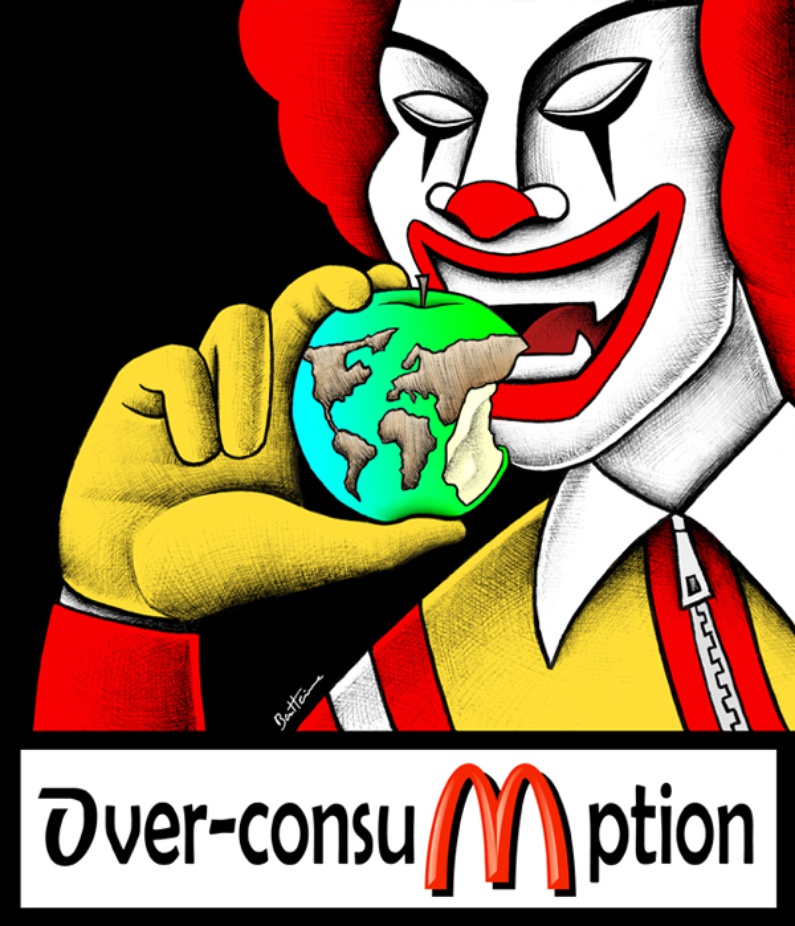 But rather than simply changing the way the world works, Giaculli thinks we need to revolutionise the way we experience it. She attacks the fetishism of commodities and capital, which tricks us into craving things we do not need. She claims capitalist values blind us to what really matters, setting up illusory ideals and turning people into instruments, a nod to Marx’s theory of alienation. “You don’t need that much to live a good life,” she says, unwittingly sounding like Jesus Christ. But if Jesus was the first socialist, then Angie Merkel’s right-wing ‘Christian’ democrats are on the wrong end of the spectrum.
But rather than simply changing the way the world works, Giaculli thinks we need to revolutionise the way we experience it. She attacks the fetishism of commodities and capital, which tricks us into craving things we do not need. She claims capitalist values blind us to what really matters, setting up illusory ideals and turning people into instruments, a nod to Marx’s theory of alienation. “You don’t need that much to live a good life,” she says, unwittingly sounding like Jesus Christ. But if Jesus was the first socialist, then Angie Merkel’s right-wing ‘Christian’ democrats are on the wrong end of the spectrum.
As the interview winds up, a large white screen rolls down just behind Giaculli’s head. A projector splutters to life in a blaze of light that almost blinds her. She turns and says, “Mexico – Cameroon,” before launching into a World Cup story. It turns out Giaculli worked at the 1990 World Cup in Italy for two years in the international press office. Although “it was quite fun,” her World Cup stint shone a light on the capitalist carnage behind it all. She spits out the names of Blatter and Havelange like they’re dirty words. “They really are a Mafia,” she fumes, “I’m disgusted by it. They’ve spoiled everything. Capitalism spoilt everything. It spoilt our fun.”





